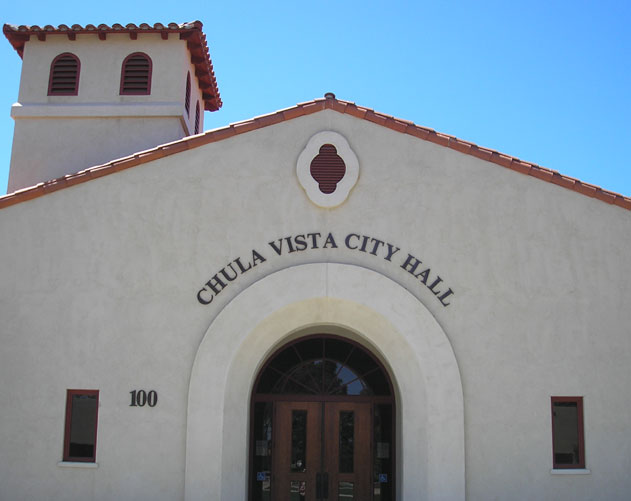The city of Chula Vista is holding a virtual community form to present information and secure input on the Automated License Plate program. This information will be used by the Chula Vista Police Department and City Council to consider how the program is implemented.
This is the first in a three-step outreach on the ALPR program. The next step will be to hold a public workshop provided by the police department, scheduled for April 7 at 4 p.m. CVPD will return to Council on April 20 with a summary of the public comments, and staff recommendations. ALPR systems are digital camera systems paired with software to identify license plate numbers. The cameras have a limited range. Images contain only the date/time and location the image was taken, officers may manually search images for specific license plates, and images are retained one ear from date taken unless tied to a specific crime.
ALPRs have been around for about 50 years and started showing up in law enforcement about 20 years ago. Roughly 74 to 85 percent of U.S. agencies use some sort of ALPR system. Ten out of 11 county agencies use ALPR systems in some capacity. In Chula Vista four ALPR cameras are mounted to patrol cars.
At the City Council meeting on March 23 Chula Vista Police Chief Roxana Kennedy said the department is understanding that there are questions and a greater need of the understanding of greater technology while balancing privacy rights of the community.
“The CVPD has taken a collective examination of our ALPR program and would not have happened without our partnerships with community members that have shared their concerns,” she said. “The CVPD is sensitive to the concerns of our undocumented community. Although the ALPR program is compliant with SB-54, hearing concerns from our community that in sharing data with ICE and Border Patrol, did not echo the spirit of SB-54, and caused us to stop and reevaluate. We immediately suspended sharing data with those agencies until further evaluation and examination of our program.”
Kennedy said the department encourages the community to participate in the conversation about public safety and technology.
“Although we have a safe community, with recent increases in crime, our community has really reached out to us and many Chula Vista residents have been demanding more technology to protect our community, while others are asking for less,” she said. “Our goals are the need in balancing and keeping Chula Vista a safe community. This is the time to have open dialogue as we discuss community expectations and safety.”
Investigative Captain Eric Thunberg oversees the ALRP program and said the department has had several concerns over the past few month of what the program is and what it does.
“It is touch and sensitive at times, but that is what community policing is, engaging with the community,” he said.
Thunberg said major concerns from the community are invasion of privacy and infringement on privacy rights, violations of state law related to sharing data (SB-45, SB-34), retention of data, misuse and abuse of the system, sharing of immigration data, real time tracking of individuals, among others.
“This is an excellent opportunity to reengage with the community and talk to the community about what we perceive is an important tool in keeping the community safe while finding a balance with individual rights and community concerns,” he said.
Thunberg said the department gets about 75 hits or matches on the plate system a year, give or take.
For both the April 7 Community Forum and April 20 City Council meeting, the public may provide eComments at www.chulavista.granicusideas.com/meetings submit an email to communications@chulavistaca.gov, or send a written comment to City of Chula Vista, Attn: Communications, 276 Fourth Ave., Chula Vista, 91910.















